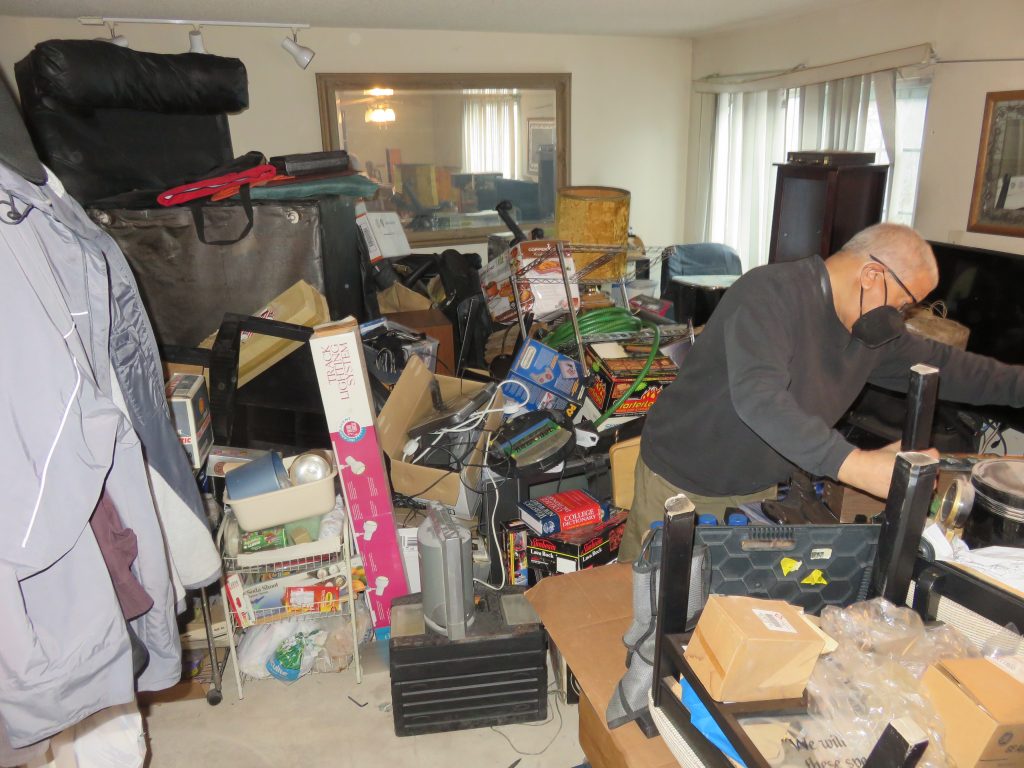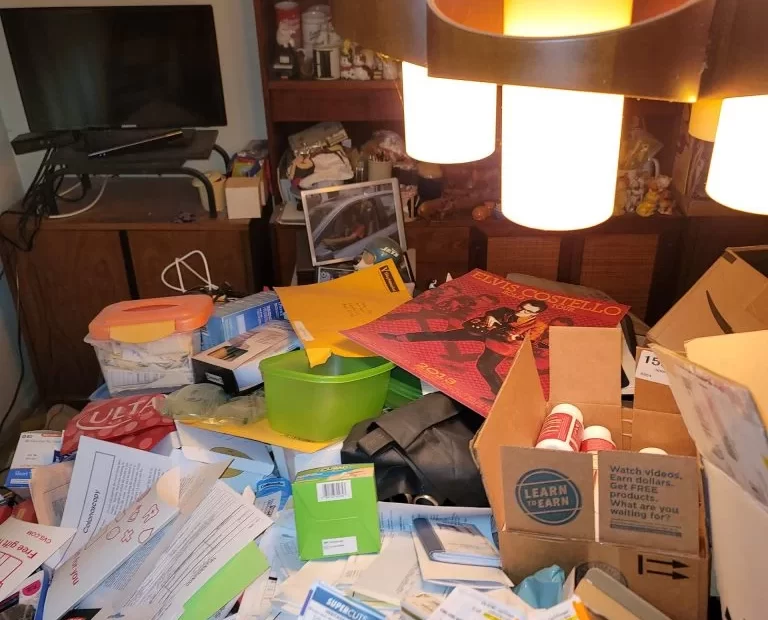Compulsively amassing excessive piles of miscellaneous items, regardless of their financial value, is known as hoarding. This mental health disorder affects an estimated 19 million Americans. Families of hoarders are urged to offer them help, even when they disagree that they are hoarding.
Table of Contents
What is hoarding?
According to the Diagnostic and Statistical Manual of Mental Disorders, a handbook of psychiatric diagnoses, hoarding is a severe disorder. An individual meets the diagnostic criteria when they accumulate an unmanageable or hazardous number of possessions and feel distress upon discarding them.
The collected items are often useless or have limited value. The hoarder’s overcluttered home is out of control, being littered with boxes of decades-old receipts, crumpled fast-food wrappers, books, bags of trash, newspapers, rotting food, tools, clothing, and even, in some cases, live animals.
Hoarding starts slowly and the person affected by this disorder may not realize the consequences of their ongoing compulsivity. Sometimes, these individuals are aware of their tendency to hoard while others refuse to acknowledge and deal with their mental health problem.
How does hoarding differ from collecting?
Hoarding differs from collecting items. People affected by a hoarding disorder rarely display their clutter of disorganized possessions with no real value. On the other hand, collectors proudly put their collections on display and maintain a neat and organized appearance of their valuables.
How do family members help someone with a hoarding disorder?
1. Help them Open Up
Family members are advised to avoid using force to stop a person who hoards. Many hoarders are unable to articulate a reasoning for hoarding. A better option is to provide encouragement and listen to the motivation behind their obsession, which can help them open up about this long-term issue.
2. Schedule Therapy
People who hoard may not see their addiction as a problem; as a result, they do not believe they need help and see no reason to change their behavior. Effectively resolving a hoarding issue starts with admitting that a problem exists, which can be a gradual process.
Hoarders may not have the ability to find a licensed therapist, which puts this task on the shoulders of family members. The support of a therapist or psychologist can bring the issue to the surface and resolve the problem long-term so that the hoarder doesn’t regress shortly after decluttering.
3. Encourage Them to Declutter
Although family members are motivated by good intentions, they should never clean up for the individual struggling with a hoarding disorder. The person who hoards must take the initiative in order to better themselves. It’s also unwise to handle their items without their permission.
Entering the hoarder’s home and forcibly removing bags and boxes is a major violation. Actions like these instill fear in the hoarder, causing them to avoid trusting family members. They may even start believing the family member is out to harm them or wants their belongings.

4. Assist Them in Removing Items
When the individual makes the independent decision to declutter, they may feel overwhelmed by the sheer size of the monumental task. Family members can step in and offer to help. But the management of the extraneous items is best outsourced to a reputable company that specializes in hoarding cleanup.
5. Focus on Safety
Stacks of newspapers in the living room that teeter near the ceiling and piles of clothing are fire hazards. Family members should focus on fire safety and emergency access when helping the individual clean up. Remember that a hoarding situation is never safe.
6. Celebrate Small Improvements
Rehabilitating a person who hoards is a long-term process. Rarely does the hoarder discard all of their excess possessions at once and maintain a clean household environment. Commend the family member when they make improvements, as it helps motivate them toward making continual progress.
What are the dangers of hoarding?
A hoarded home is an unsightly one, but it’s also a health and safety hazard. Fires can erupt when white-phosphorus matches self-ignite. Stacks of boxes can topple over visitors or the individual with the hoarding disorder. Contaminants pose a risk to the health of the hoarder.
When the home is rented, the landlord is unlikely to tolerate the hoarding situation. The person struggling with a hoarding disorder can be evicted or fined. Families should avoid calling the authorities too, as this can intensify the hoarder’s distrust in the people trying to help them.
Rehabilitating a family member affected by hoarding requires focusing on the individual rather than their belongings. Remember that hoarding behavior is caused by underlying issues. Support the hoarder as they try to overcome their disorder rather than focus on the negatives of the clutter.
Hoarding is a serious issue that can cause severe health and safety issues. A home overrun by rodents and cockroaches, contaminated by mold and mildew, and teeming with fire hazards should be cleaned. ServiceMaster by Replacements is experienced in cleaning and restoring hoarded homes.
Once your family member agrees to have their home professionally cleaned, our technicians clear the excess materials from the home and restore it to safe conditions. We remove goods that are a risk for injury, decontaminate the space, and deodorize the home to remove odors.
Our efficient hoarding cleanup services abide by the rules and regulations set by the EPA, OSHA, and Department of Transportation. Cleanup crews dispose of all the clutter removed from the home through various means. Options include recycling, donating, or discarding them.
Families can rest assured that our hoarding cleanup specialists compassionately and respectfully approach the individual suffering from a hoarding disorder. During the cleanup of the home, all their belongings are handled according to their wishes; plus, we do not remove items without their consent.
Hoarding is a dangerous situation. Do not let your family member remain at risk by living in a hoarded home. Consult ServiceMaster by Replacements for professional hoarding cleanup. We serve residential homes in New Jersey.
To learn more about our hoarding cleanup services, make sure to call us today at (732) 842-6917 or fill out a form on our website.







